This was originally published on November 24, 2014. I thought some of you may not have read this and others may like to read it again. The original comments are included as well, which are worth a read – let us know what you think in the Comments about the collector car market.
by Mike Gulett –
I was reading an article in the New York Times on Nov. 22, 2014 titled Conspicuous Consumption? Yes, but It’s Not Crazy by Robert H. Frank, economics professor at Cornell University.
The article basically said that rich people buy more expensive things than non-rich people. When the author talked about cars he talked about new luxury cars not collector cars. This is something I have run into before – many people think of cars as merely transportation. I know because I have some relatives and friends who think like that and I have met some total strangers who do as well.
As usual my thoughts turned to how the ideas in this article effect the collector car market. This thinking led to me following ideas around the Internet and here is what I came up with.
Veblen Good
Abnormal market behavior where consumers purchase the higher-priced goods whereas similar low-priced (but not identical) substitutes are available. It is caused either by the belief that higher price means higher quality, or by the desire for conspicuous consumption (to be seen as buying an expensive, prestige item).
Named after its discoverer, the US social-critic Thorstein Bunde Veblen (1857-1929).
Source: BusinessDictionary.com
The New York Times article mentioned this economic theory so I had to look it up.
Collector Car Market
The Veblen good theory applied to the collector car market, for example, results in a rich collector buying a 1968 Ferrari 330 GTC when a 1967 Chevrolet Corvette or 1969 Ford Mustang Boss 429 would do just as well and at a much lower price.
Why would someone buy the Ferrari instead of the Corvette or the Mustang? Do they think “higher price means higher quality” or do they want to be seen in a Ferrari instead of a Chevy or a Ford?
The Corvette and the Mustang would go faster in a drag race but the Ferrari wins on the engine sound. But that is an expensive sound.
Conspicuous Consumption
Conspicuous consumption is the spending of money on and the acquiring of luxury goods and services to publicly display economic power—either the buyer’s income or the buyer’s accumulated wealth. Sociologically, to the conspicuous consumer, such a public display of discretionary economic power is a means either of attaining or of maintaining a given social status.
Source: Wikipedia.org
The term was first used by the US sociologist and economist Thorstein Bunde Veblen (1857-1929) in his 1899 book ‘The Theory Of The Leisure Class.’
Thorstein Bunde Veblen apparently did a lot of thinking and writing on the subject of rich people and their money.
A car collector that has his own private car museum would likely fall into this category. However, many of these museums turn into public venues where people from all economic levels can see these rare and valuable collector cars in person.
The museum usually has the founders name on the building.
But why does someone have a need to own so many cars at once? Only one car at a time can be used so why not own just a few and sell them and buy them when the desire strikes?
Why be a mass quantity collector rather than a serial collector?
The Snob Effect
Situation where the demand for a product by a high income segment varies inversely with its demand by the lower income segment.
Source: BusinessDictionary.com
This is a common term and it applies to the car collectors who would rather be seen driving around town in their rare collector car than the mini-van. I know that’s me even though I don’t own a mini-van.

Lancia Aurelia Spider – photo sent in by Trevor Gaunt from the U.K. (see his comment in the Comments section below)
It also applies within the collector car world where collectors seek rare, unique cars that no one else has. However, this could be just good investing rather than the snob effect. It can get confusing.
Common Law of Business Balance
There is hardly anything in the world that someone cannot make a little worse and sell a little cheaper, and the people who consider price alone are that person’s lawful prey. It’s unwise to pay too much, but it’s worse to pay too little. When you pay too much, you lose a little money – that is all. When you pay too little, you sometimes lose everything, because the thing you bought was incapable of doing the thing it was bought to do.
The common law of business balance prohibits paying a little and getting a lot – it can’t be done. If you deal with the lowest bidder, it is well to add something for the risk you run, and if you do that you will have enough to pay for something better.
Source: Unknown (has been attributed to John Ruskin, a 19th-century art critic, but that may not be correct).
A common occurrence in the collector car world is when a buyer seeks a bargain and winds up buying a car with more needs than the budget allows. Where the cost of the car plus the restoration work is greater than the value when done.
Or, a buyer buys a lower cost model that does not hold it’s value or appreciate like the more expensive model would have. When the price seems too good to be true it usually is.
I believe one should buy the best example of the desired model that one can afford.
Remember this – “It’s unwise to pay too much, but it’s worse to pay too little.”
The Conventional Wisdom or Common Knowledge
Ideas or explanations generally accepted as true by the public or by experts in a field.
John Kenneth Galbraith used the phrase “the conventional wisdom” in his 1958 book The Affluent Society where he wrote,
“It will be convenient to have a name for the ideas which are esteemed at any time for their acceptability, and it should be a term that emphasizes this predictability. I shall refer to these ideas henceforth as the conventional wisdom.”
Here is a list of some of the conventional wisdom and common knowledge that I can think of in the collector car world:
* Barn finds are a good thing
* Don’t clean off the dirt on a barn find because that will reduce the value
* Red is a better color for Italian cars especially – after all it isn’t called “resale red” for nothing
* It is original only once and should not be restored
* Drive your car and use it like it was meant to be used
* Don’t buy a rusty car
* Buy a rusty car if it is in original and untouched condition
* The Ferrari 250 GTO is a great car
* A public auction sets the fair market price for collector cars
Some conventional wisdom and common knowledge are true and have been tested over many years, or longer, and some conventional wisdom and common knowledge are just old stories that are not true.
Sometimes we follow the advice of conventional wisdom and common knowledge even though it isn’t good for us. This is certainly true in the collector car market.
Let us know what you think in the Comments.
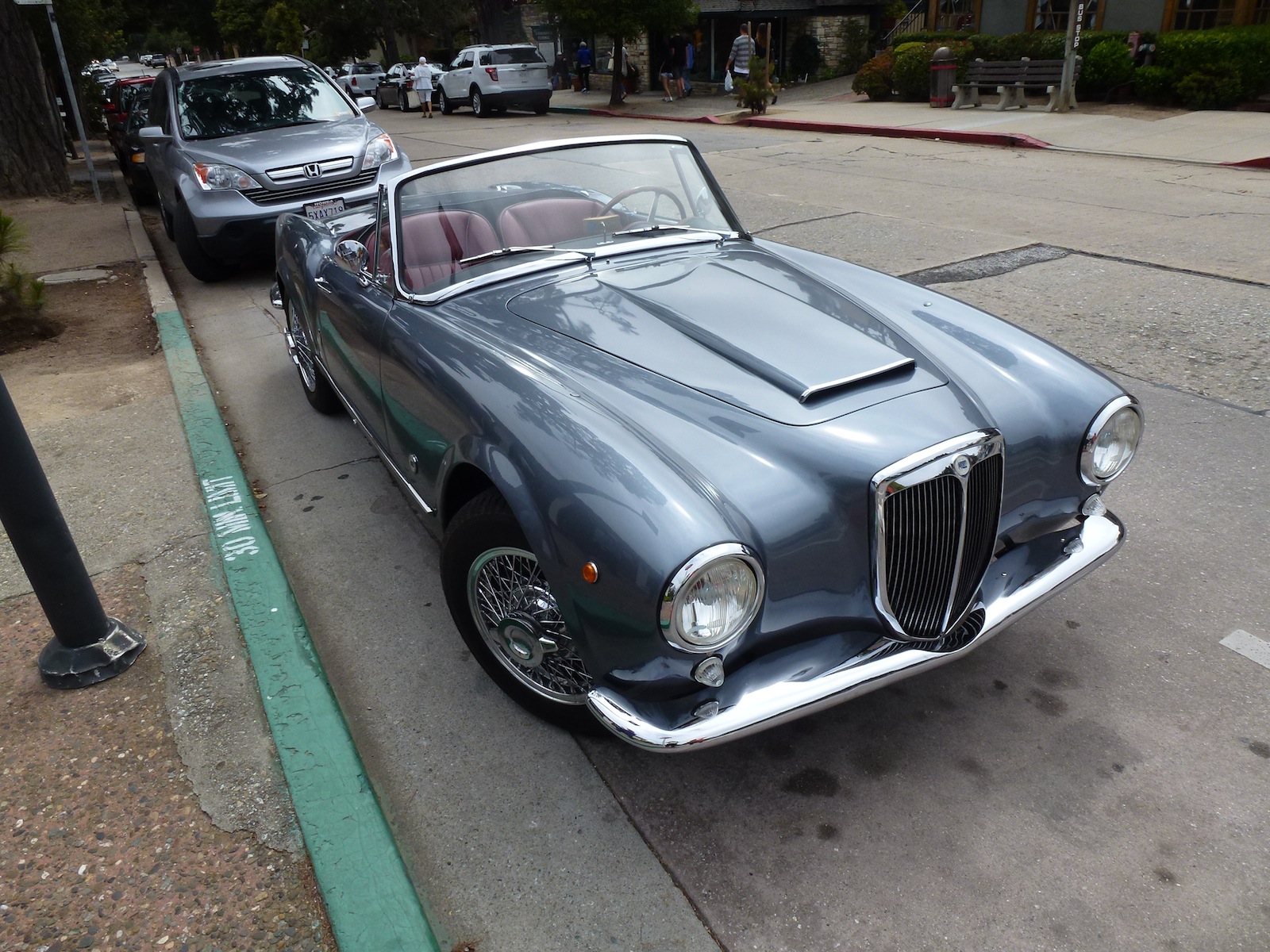
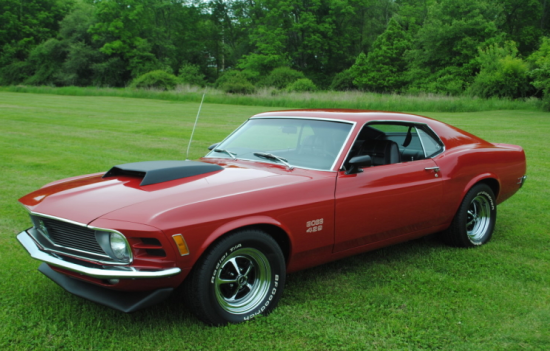
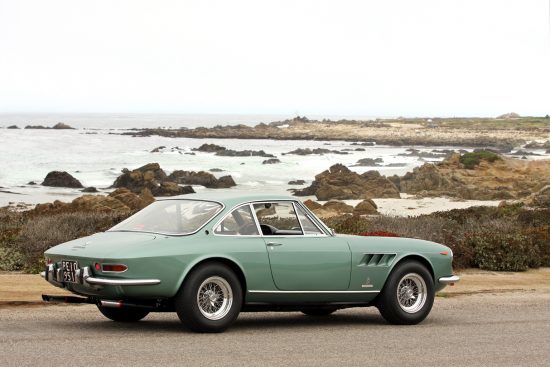

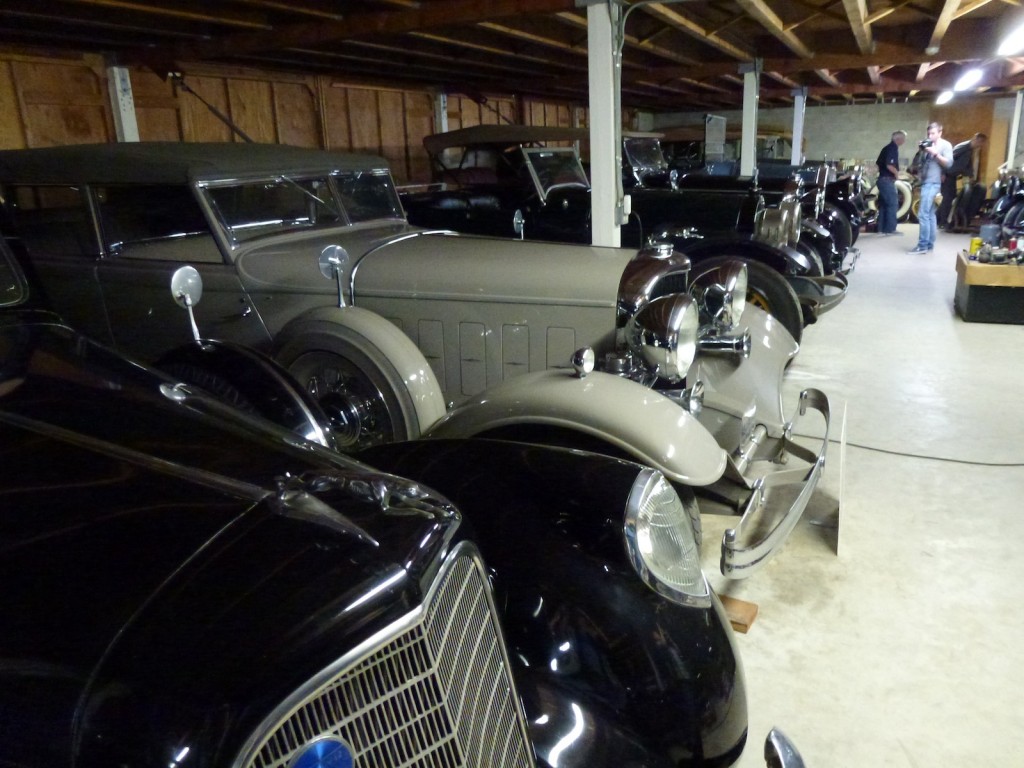
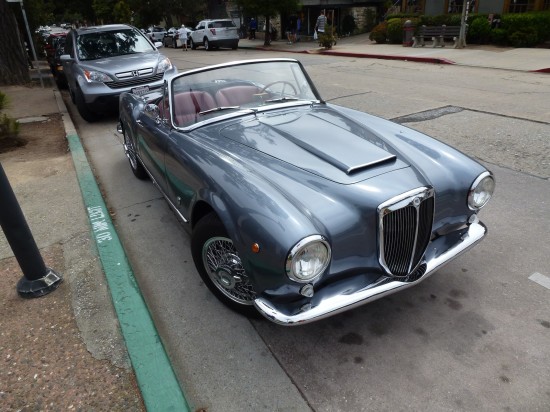

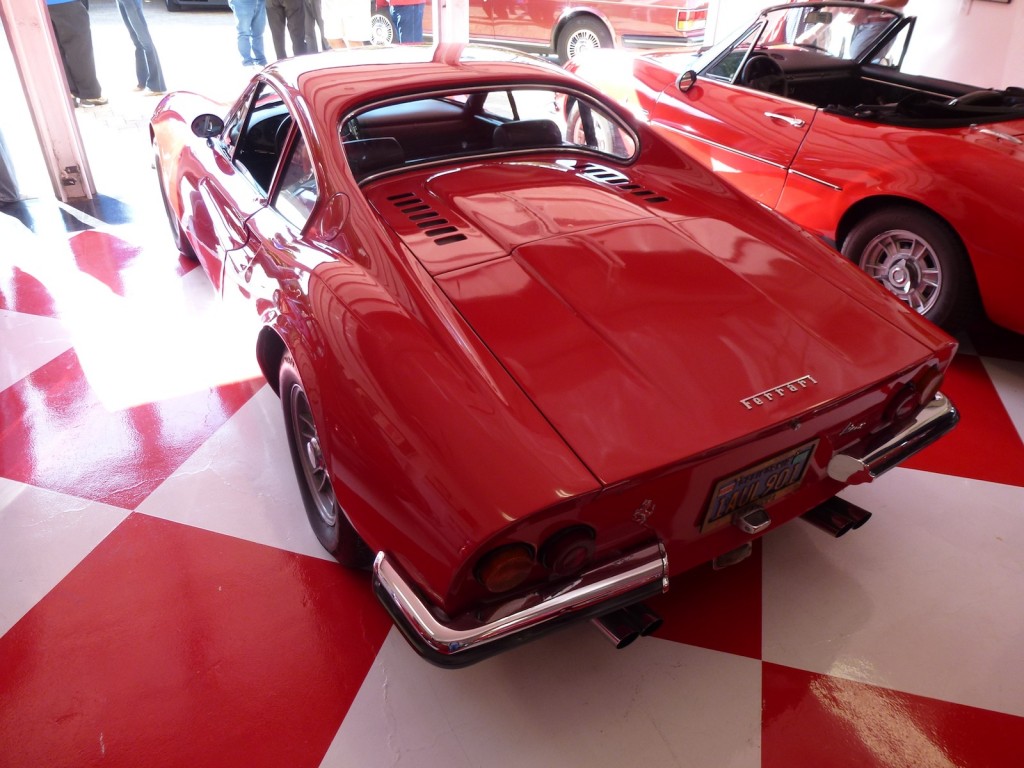


I believe this is being overthought. In Ferrari vs Mustang vs `vette, there is a very obvious reason, aside from sound, the Ferrari is widely considered to be much more attractive. When you’re buying an Italian classic it’s generally a very attractive car, and visual aesthetics mean a whole lot.
Jeremiah,
The Veblen Goods theory states that buyers “purchase the higher-priced goods whereas similar low-priced (but not identical) substitutes are available”. It seems to me that the Corvette and Mustang are similar but not identical to the Ferrari in the example I chose. I mentioned the engine noise as one difference and you mentioned the styling as another.
On a completely different topic your statement that “the Ferrari is widely considered to be much more attractive” would be argued by many Corvette and Mustangs lovers.
The market determines that a Ferrari is a more attractive brand, therefore many things can be said but it cannot be argued that the money that are put on the table for a Ferrari is not comparable to a Ford or Corvette.
Upon my 1st sight of both a 1967 Olds 442 and a 1974 Fiat 124 Sports Spider I was smitten with both and now own both, the 442 for 21 years and the Spider for 44 years, both have been daily drivers. Believe my being smitten with my Spider is due to Pinin Farina’s design expertise which is also very prevalent in so many Ferraris and in the Olds F-85/Cutlass Supreme/442 designs from 1963-1967. Just personally don’t get those tug-at-your-heartstrings feelings over any Mustang, Porche or Chevrolet including any Corvette, have seen way too many of them. But alas, I’m trading my Spider and cash for a Ferrari 456M GTA. A horse is much faster than my Spider and it will sit proudly next to the RIGHT American muscle designed 442
Great article Mike and very relevant to today’s collector car market. I particularly like the section on The Conventional Wisdom.
As a business we are committed to challenging the conventional wisdom if it is incorrect – you can see this if you read our blog or our column on Goodwood Road& Racing. Not everyone agrees but we consider what we are saying very carefully.
Here are some other “Conventional Wisdoms” for you:
The car is now sold – so it must have sold for the advertised price
A car is rare – so it must be valuable
Classic cars are a great investment
Cars are now too expensive for “real car enthusiasts” – So car enthusiasts aren’t allowed to be wealthy?
Some of the above of course have an element of truth, but the conventional wisdom on classic cars needs to be interpreted correctly. Just look at the media coverage of the classic car market in the financial media – plenty of errors and omissions but speculators seem to believe most of it!
Conspicuous consumption is also rampant in the market but with so much wealth out there at the moment it’s probably a good thing. If Ferrari’s were cheap, would everyone want to own them?
I’d also love to see some research on supply and demand and how that affects market values.
Thank you Edward, I knew I was missing many “Conventional Wisdom” ideas but I could not think of any more at the time. Yours are good additions to the list.
~ Rather than ‘overthought’ these examples seem to illustrate the concepts. Their disparity internationally exaggerates their differences. Take, say a Bitter SC vs. the Ferrari 400 vs. Maserati Ghibli, generally similar in some ways but worlds apart in others. Value is to some extent subjective, yet preferences may have other factors.
Interesting analysis, Mike, thanks.
. “It’s unwise to pay too much, but it’s worse to pay too little” has been attributed to Ruskin in anything that I have read. I was not aware of a dispute.
Scot,
Read here at this link: http://en.wikipedia.org/wiki/Common_law_of_business_balance
~ Thank you, Mike. Again, good article.
Only 4 things a Human being needs, Shelter- food – fire – water – to survive.
All the rest is just Wanting.
Very true, but it is unrealistic to think that man would want only those 4 things…if that was the case we would be at the age of fire still today.
11/ 24, 2014 at 4:53 am
“Only 4 things a Human being needs, Shelter- food – fire – water – to survive.
All the rest is just Wanting.”
You’re absolutely dreaming if you did not include personal transportation. Try walking in L.A.
Try getting a job to earn money, 2 other necessities you are completely oblivious to in your post.
Humans are urbanized, Even Frank Lloyd Wright realized quite effectively in his architectural designs that well over 50 years before you woke up. Your exclusively *libertarian* agrarian pipe dream vision of Utopia is totally misplaced in this 21st century and unless your prefer living on a commune & have a taste for 3rd world living which, if you’re composing this text in English for the internet , you’re obviously not. So please spare us your totally out-of-touch with 21st reality pontifications unless you actually walk the walk that your admonishing about.
Simon – you forgot wifi!
I did well aware of wifi ( as well as indentity theft ) and if that’s the sum total of what you consider an intelligent response then you’ve made my case for me about the worth of your contribution to this discussion, but then perhaps that’s just me.I’m waiting to read what others think about your hopelessly simplistic libertarian pipe-dream. Try selling your philosophy in Colorado whom are now legally smoking the libertarian pipe-dream like Hunter S, Thompson did who ultimately saw fit to blow his own drug & alcohol-soaked brains out with his children in the very next room because he couldn’t handle the effects of all of the toxins that he freely *chose* to pump into his system throughout his life had come back to haunt him. Not polite to try and fool Mother Nature. He said it best himself and then reneged upon his own admonition: ” You buy the ticket, you take the ride”. How I detest phonies.
Fredric – Take a deep breath. I read Edward’s comment as an ironic addendum to Simon’s comment (not yours), which appeared to be light-hearted and not an expression of a philosophy of life. Even if it was that, I’m not sure either comment deserved your diatribes, complete with the weirdly off-topic run-on sentence about Hunter S. Thompson.
Back on topic; thank you Mike for the thought-provoking article. Indeed, there are many reasons people chose a special-interest car, such aesthetics and the driving experience, both of which can be personally fulfilling. These priorities will vary widely from one individual to another.
Fred,
Better take anotherer hit off that bong and chill out
Prosecco and balsamic vinegar..
The section of the restoration I have seen is that a person will buy a bargain and try to put the absolute minumum into it to maximize his profit and while doing it press everyone on the way for the absolute lowest price so now many corners are cut and the quality is lacking from the start.
They will deem what the needs are themselves or use an “expert” who is as incapable as themselves to have a restoration done and when they sell the product it is truly an example of paying too much for too little, and what you are getting as you will find in time is that the car is not a sound deal so now you are paying for something that will not do the job.
To have a car restored will almost always cost more than its value, and you will have to pay more for it but then again as common law states you will have something that will do the job.
The quality of these jobs and the cost of these jobs are truly what separates the high end collectors from the low end ones.
Boris,
I agree that cutting corners on a restoration is not a good idea.
“It’s unwise to pay too much, but it’s worse to pay too little.”
I noted the NYT article, but passed over it. However, I did think to myself these articles tend to presage an end to a cycle which brings me to my most cherished conventional wisdom regarding automobile investing.
Buy what you can enjoy and live with for the duration.
So Brian, you don’t believe is selling once in a while and letting someone else have fun with a classic car?
If the investment value of a car declines sharply because of a market adjustment and one is loath to sell because of the resultant investment loss, one can at least receive some gratification from driving a car he enjoys.
In the early 90’s, I purchased a car ( 66 Shelby GT 350H) which I didn’t care for but I thought would pan out from an investment perspective. It did not. It sat in storage until the market turned.
Wonderful thought provoking and enjoyable article Mike.
Thank you Pete.
That photo is an Aurelia B24 Convertible, not a Spider. The difference? A windshield and about $1million.
Tell that to Maslow and Veblen.
Will,
Thanks for the info. Sometimes I cannot tell the model without a sign on the car. I am sure Maslow and Veblen would have something intelligent to say about that.
Really – $1 million for a different windshield?
Well there are some other differences;
– split front bumper on the Spider
– wind-up windows on the Convertible
– different rear-end styling
– wheels (unless replaced with Borrani wires, as in your photo)
However the wrap-around windshield of the Spider is its trademark. And the price difference at the top of the market is about a million dollars. Go Figure. Oh, you already did!
Great article Mike. I thoroughly enjoyed it and the citing of these theories highlights your points. I understand some basics about cars, and I do not know much about classic cars, but I think I know a bit about the wealthy vs. the not so wealthy car preferences. In my experience, most of the more wealthy people simply love to buy expensive things – cars included. They are not enthusiasts or collectors, they simply prefer to have the more expensive one in their garage. The widely accepted quality of the vehicle, and also the quantity, plays a role in making them feel important and successful. I know people who have bought a Porsche 911 (not sure what yr but it was a classic one) and ordered a new Tesla, simply because they can afford it. So, in my opinion in the collector car market today, most people are simply people with money, not genuine collectors. But, this is simply my two cents.
Thanks!
By the way very interesting article as usual…great job!!!
Good article Mike. You obviously hit a nerve!!!!! Keep it up. Roger R
Hi Michael,
I couldn’t work out a way of attaching to a comment on your article. Please find attached a picture of a Lancia Aurelia Spider that shows the wrap around screen and split front bumper. It’s a beautiful piece of art that could be used as a means of transport, although I suspect it would be somewhat impractical.
Why would someone choose a Ferrari over a Ford or Chevrolet? Well, there’s the obvious badge snobbery; the Ferrari is arguably better looking, but experience shows the Italian car, while more expensive in the first instance, has far more potential for appreciation in value over the long term, even taking into account the higher maintenance costs. So the Ferrari makes sense as an investment tool, provided the owner uses it sparingly as a means of transport and, it goes without saying, insures it for an agreed value while doing so.
Best regards,
Trevor Gaunt
Lotus, Porsche and Jaguar owner with aspirations of Ferrari ownership.
Trevor,
Thank you, I posted your photo below my photo of the Lancia Aurelia B24 Convertible.
This is the first Automotive interactive discussion that became cancerous as opposed to the normal Comrardory that to me seems to always be a common thread that is one of the main attractions to belong or want to belong to the regular car guys World ! You know, the one where the guy we’re thrilled to have be our “ Man” at the wheel is Jay Leno not necessarily Ralph Loren . Don’t read me wrong …. Ralph’s notable young Car Collecting has added more than most to the Level of The very best thannperhsps any other notable collector and he gave my good friend Rebecca Tweedy the job of biological naming of them all when he put them under one roof ! I’m one to take a philosopher like Maslo who is basically intellectual law and not alter the Maslo needs hierarchy in any way ! It in my opinion is foolish to cast ones own interpretations on Enstien … Maslo …. Enzo …. Shelby or anyone of such status
Interesting article, and perhaps even more interesting comments from a purely sociological point of view. Not sure why the comments seemed to deteriorate and venture off the topic. Finally, I am fascinated by the cost of a Lancia Spyder since I had a book as a young man with pictures and prices of sports cars of the fifties and recall the new prices listed. I certainly recall the beautiful Lancia Spyder and wished that I could afford one, but, alas, I was just a teenager making fifty cents an hour working in a local music store. I guess I must have had good taste in cars and if I could have afforded a Spyder and kept it, I’d be much better off today financially. The bugeye Sprite at less than $2000 was more my speed, but also beyond my means at the time. Somewhere along my lifeline I was able to buy a 1957 TR3 for $450 about ten years after it was new and later also bought my first of two Porsches. I still have the second Porsche and I’m presently restoring the TR3 to better than new.
Rusty cars and old wooden hull boats are like old whores, not everybody wants one
You touched on this… but I’d like to amplify if I may:
In the context of bona-fide collector cars, expensive is not necessarily conspicuous consumption. In fact its the opposite. When the wealthy spend several million for a 250GT SWB or a DB4GT, they have merely reallocated their investment portfolio. Like other investments it may appreciate or depreciate, but this “rolling art” will never go to zero. Enjoyment of this asset, if not the point of the exercise, in an inherent bonus for the new owner, and for the next one.
The middle class, on the other hand, when they spend their money its gone, I.e., it doesn’t stay on their balance sheet. That’s where the “consumption” comes in.
For example, assuming I can afford it without digging into the 401(k), I can easily justify spending a million dollars on a blue chip classic but cannot get my head around spending $100K on any new car. That’s an extravagance! Meanwhile I have total awareness that my wife’s new Mini does just about everything better than my old, valuable automobile.
So what? It’s apples and kumquats!